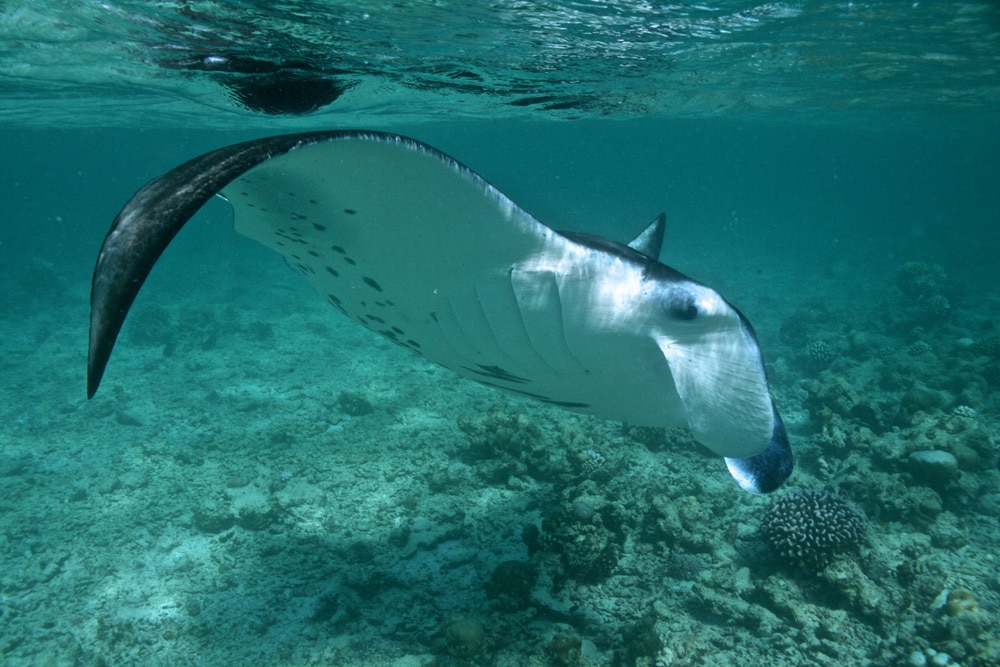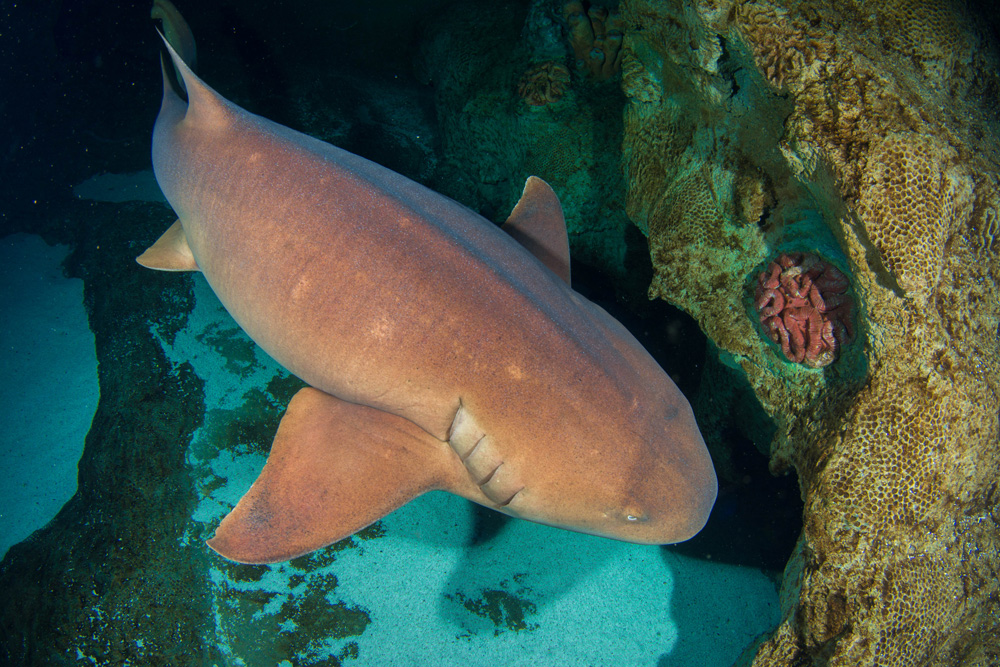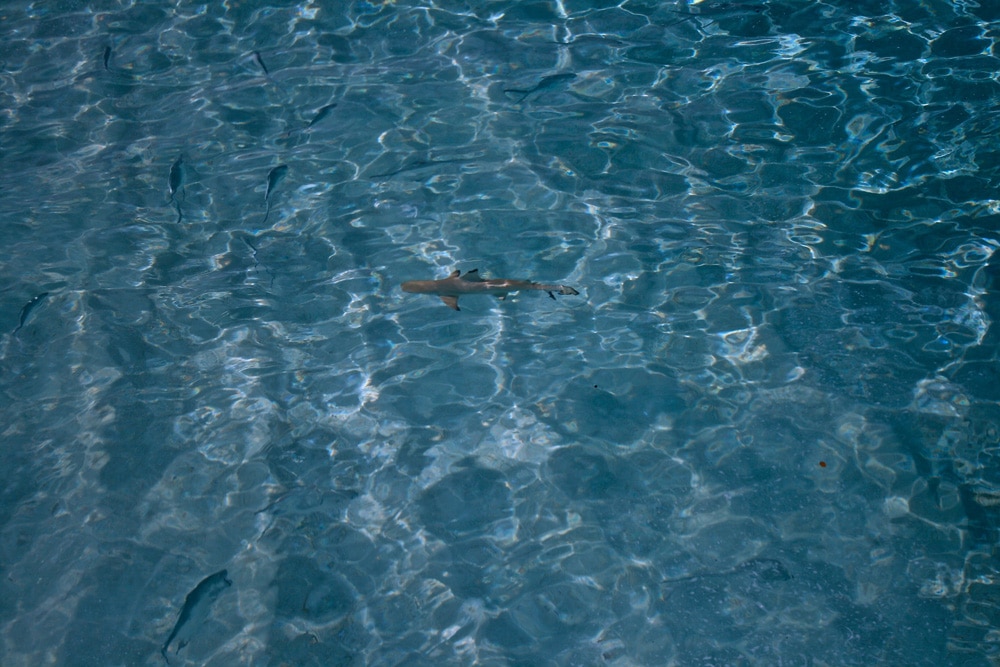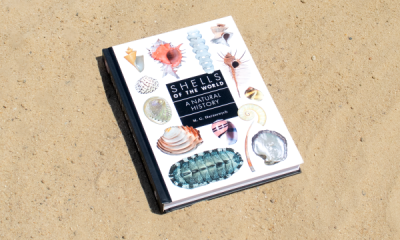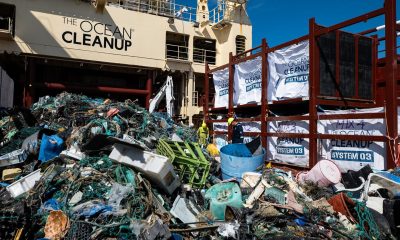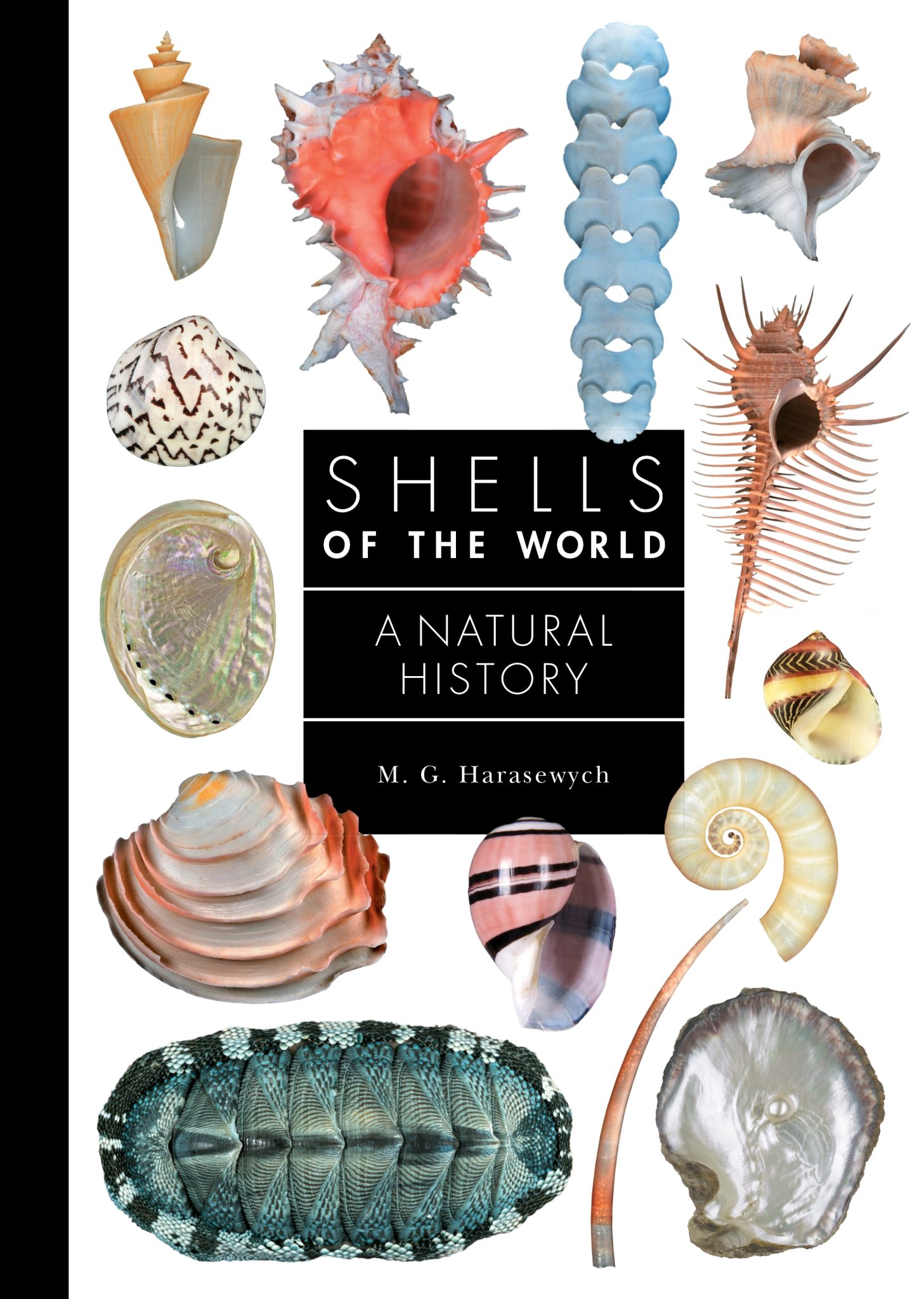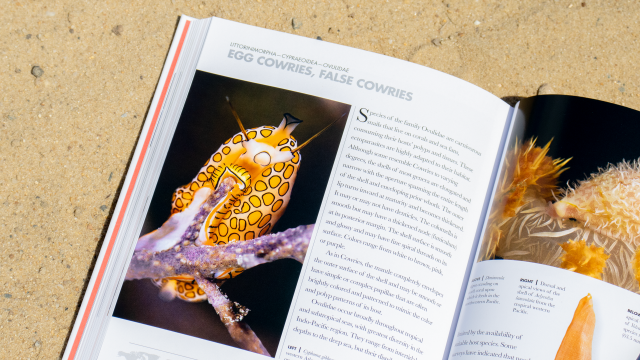Marine Life & Conservation Blogs
Sharks: The Oceans Greatest Mystery – Part 3
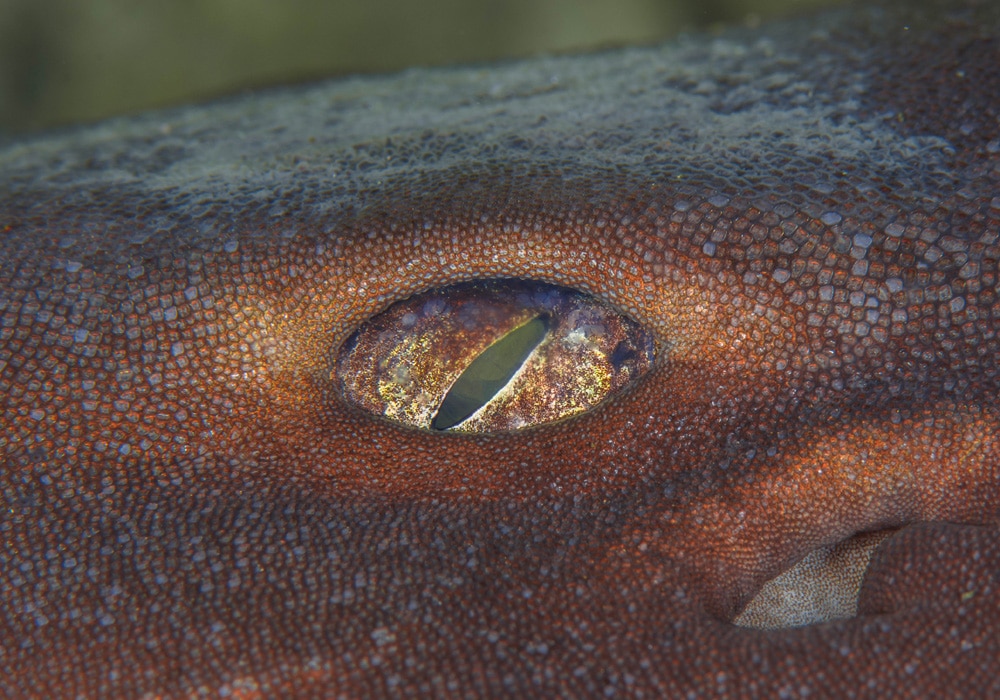
Sharks are a truly incredible animal that have evolved and shaped themselves to be the perfect predator which, in turn, has shaped our oceans and the animals that live within it. Sharks have existed on our planet for up to 400 million years and throughout that time they have become one of the most numerous top predators on our planet, they have lived through 5 major extinction events when many other species died out. Sharks have been doing something right all this time, but at this very moment sharks are facing a threat that is so powerful that it is literally changing the face of our planet, and that force is Humans, it’s us. Sharks are being killed at an unprecedented rate, a rate of unimaginable scale. Recent studies by scientists have shown that since 1970 we have reduced Shark & Ray populations by a staggering 71%.
What threats do they face?
Sharks worldwide are currently dealing with a huge array of issues which is putting the whole group at risk. Sharks are being killed for their Fins, Oil, Teeth/Jaws and other members of the group, such as Manta Ray’s, are killed for their Gill Rakers and wings.
Firstly, let us talk about what is potentially the most inhumane form of animal harvesting, Shark Finning. This is the practice of removing a Sharks Fins, usually whilst the animal is still alive, and then discarding the rest of the animal back into the Ocean. The Shark is usually still alive throughout the whole process and the animal usually dies from drowning or blood loss on the sea floor. Shark fins only account for around 2% of a Sharks average body weight which means that 98% of the animal is merely tossed back into the ocean, 98% of the animal is just simply wasted. Now this begs the question what are Shark fins used for? Well, they are used in an Asian dish known as Shark Fin Soup, now Shark fin is tasteless, which means that the fin only adds mere texture to a Chicken or Pork flavoured broth which further begs the question, why use Shark Fin and not something else to add texture. Well, the soup serves more as a status symbol and it is known as the food of emperors and kings, those who can afford and serve Shark Fin at a banquet or party are revered as wealthy.
Sharks are also harvested for traditional medicine, where it is believed that by ingesting Shark parts such as their cartilage or liver, it can give you a Sharks “magical” powers and abilities. The most common rumour is that Sharks do not get cancer, and by consuming Sharks you can also become immune to cancer. This is of course false; Sharks do in fact get cancer and with recent additions of pollutants and chemicals into the oceans from human activities, sharks get cancer now more than ever, along with a whole host of other ailments. This means that by eating Sharks you are actually more likely to catch illnesses and ailments such as Mercury poisoning, due to the fact that Sharks hold a large quantity of such toxic substances in their bodies.
Aside from Shark finning, they are also at huge risk of becoming caught in nets and on lines as Bycatch, this means that they get caught despite not being the targeted species. For example, Sharks are commonly caught on Tuna hooks or in Tuna nets. Unfortunately, in these instances they tend to not even have their fins removed and, in this case, the whole animal is wasted. The sharks are usually already dead after being brought up due to the amount of time they have sat on hooks and usually die from exhaustion or drowning. Sometimes Sharks are killed in sport fishing tournaments as game fish, where people will go out on Shark fishing days and many Sharks will be killed for the chance of beating a previous record.
Sharks are also at risk of habitat loss, in the same way as Jaguars and Macaws in the Amazon, and Elephants in Asia. Human activities such as fishing, expansion, pollution, mining and Global Warming are all threatening Sharks Habitats. Flapper Skates, which are also known as Common Skates, are now Critically Endangered around the UK due to trawling damaging the egg laying sites for this species. The Bimini Islands, which are famous for the presence of a Lemon Shark Nursery, were in trouble a few years back with plans for demolishing a section of the Mangrove Forest on the island, to make way for a Golf Course. Thankfully it wasn’t successful, but if it was it could have put the Lemon Sharks at extreme risk as this is an area needed for the beginning of the lemon shark’s life cycle.
Another factor putting sharks at risk, is the amount of plastic pollution and pollutants in the water. Plastics can block the digestive system of plankton feeding Sharks and Ray’s such as Whale Sharks and Manta Ray’s, and discarded fishing gear such as nets can entangle up Sharks and other aquatic animals. The amount of fishing being done in the oceans also puts sharks at risk from their food supply disappearing, as humans fish the oceans, we are inadvertently removing the fish stocks that Sharks rely on for their survival.
Sharks & People
Sharks are an apex predator in the World’s Oceans, and it may seem far-fetched to believe, but we depend on Sharks more than you might think. Let us start with fish, currently 10-12 percent of the world’s population relies on the Ocean’s fish for their diet and survival, and Sharks help to keep fish stocks healthy by eating sick, injured or diseased fish and holding the toxins and diseases in their bodies until they die, this is why Sharks have such a strong immune system. With Sharks hunting these fish, it helps to keep the stocks healthy and means the fish that we catch and eat won’t make us sick.
Sharks also play a vital role in the Planet’s oxygen cycle, the Ocean essentially acts as a giant blue lung taking in Carbon Dioxide from the air, seagrass beds and plankton then absorb the Carbon Dioxide and release it as Oxygen back into the atmosphere. If Sharks were to disappear then other animal stocks would explode out of proportion and eat all of the sea grass and/or plankton and the oxygen cycle would be hindered. An example is, if Tiger Sharks were to disappear, then the Turtle population would rapidly increase, allowing the Turtles to eat all of the Seagrass, which would mean we lose a key component of the production of our oxygen. Along with plankton, seagrass helps to produce 75% of the Oxygen we breathe daily. Seagrass Meadows also store more Carbon than any Forest on land making them one of the most productive habitats on our Planet.
How can we be better Ambassadors to Sharks?
It may seem like there is not much we can do, but you would be surprised to hear that there is in fact a lot that we can do to help Sharks. Sharks have been tarnished with a hugely negative reputation, a reputation that can make protecting them difficult. The problem is people are told their whole lives that Sharks are mindless killing machines and that if you go in the Ocean, you are likely to meet your timely demise, but we now know that these stories are literally just that, stories. One of the best ways of protecting sharks is to help people better understand them and all it may take is a simple conversation, a conversation where you can debunk myths, a conversation where you can change their perspective. Jacques Cousteau once said, “People protect what they love”, and this saying holds a lot of weight. People will protect sharks if they love them, and the only way to allow people to love them is for them to first understand them, and understanding first comes through education. If people love Sharks, then the whole cycle starts again with them going out and telling people about Sharks. If you are Diver and or, Underwater Photographer, then you can share your experiences and imagery with people, which will allow their perspectives to shift, and you would be surprised to find out how beneficial Social media can be for Sharks, as it’s a place where you can share your images and stories to a very wide audience across the globe.
Another way to help is to not buy Shark Fin Soup or any Shark products, it may be tempting to buy a Shark tooth necklace or Shark in a jar when on holiday, or even to try Shark Fin Soup, but this will only feed the problem, if we can do this then, when the buying stops then the killing can too.
Something that has been realised recently is that Sharks are worth more alive than dead and over a Sharks lifetime, it can bring in many millions of Dollars through Echo-Tourism, compared to the couple of dollars it will bring into a fisherman if the animal is killed. Thankfully, areas that were once Shark fishing hotpots, have turned to becoming areas where Shark populations have exploded, due to an influx of Divers from across the globe going to see Sharks alive and healthy. Places such as Raja Ampat, The Maldives, and The Galapagos Islands have put protections on sharks and in doing so attract divers to these areas where Sharks are protected, with divers going to these areas only further helps and funds the Protected area and allow the work to continue.
A final thing you can do is to write to your Local MP about needing larger and stronger Marine Protected areas, with stronger protections from commercial fishing. As it stands there is less than 0.5% of our World’s Oceans that have complete protection from commercial fishing. Scientists have stated that for our Oceans to be protected, we need at least 30% of our Oceans to have complete protection for Sharks, Fish and other marine mammals, which will, in turn, allow our Oceans to stabilise themselves.
There is still a lot that you can do and if you do just one of these things, you could help change the fate of Sharks and allow them to continue thriving and shaping our oceans for millennia to come.
So that’s it, a deep dive into Sharks, our Oceans Greatest Mystery. A look into their biology, behaviour and secrecy. I hope after this you come away with a better understanding and appreciation for this incredible group of animals, I hope after this you now look at a Shark and see not a monster, but an animal that is incredibly misunderstood and one that not only keeps our Oceans healthy, but also our whole Planet. Sharks are a key component in our survival, and with our help they can continue to be our Oceans Greatest Mystery.
Follow Donovan on Instagram at www.instagram.com/donovans_reefs
Marine Life & Conservation Blogs
Book Review: Shells of the World
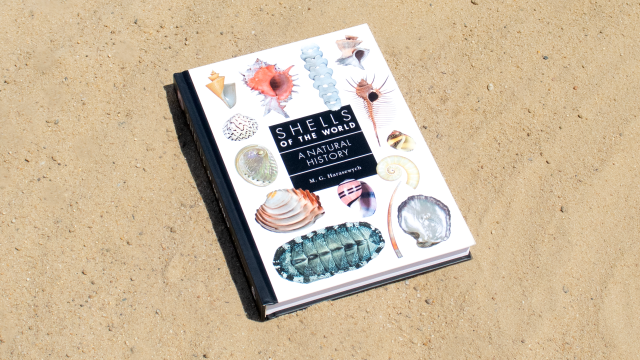
Shells of the World: A Natural History by M.G. Harasewych
Shells of the world is a guide to the world of marine, shelled molluscs. And what a varied and interesting world it is. Some of my favourite things to find on a dive are detailed in this book, including disco clams (or Electric File Clams as they are correctly names), the cephalopods, giant clams and sea hares. There are also many on my wish list, top of which is the Nautilus.
Each chapter provides a detailed description of the species, along with beautiful images. You can dive deeper and discover where they live, both with global distribution and the habitat they prefer. Learn about their diet, reproduction and diversity.
Having dipped in and out of this lovely book over the past few weeks, it has inspired me to learn more about this group of animals that we see on most divers, wherever we are in the world. Some of the shells are incredibly intricate and beautiful. I have always agreed with never collecting, or touching, marine life. The description of a certain set of cone shells should be a warning to those that are happy to pick up marine life! One of the cone shells has a local name called the cigarette snail. Why? Because once the venom is in your system from this animal, you only have time to smoke one cigarette before the affects of the venom are fatal!
What the publisher says:
Mollusks are invertebrate animals with a remarkable natural history and a rich fossil record, and their shells are prized for their breathtaking variety and exquisite beauty. Shells of the World provides a wide-ranging look at the incredible diversity of marine mollusks. An informative introduction outlines the lineages covered, followed by a directory section, split into classes, that profiles a broad selection of different taxa to give a sense of their sheer numbers and variety.
- Features hundreds of beautiful color photos, depicting both the live animals and their shells
- Discusses mollusk evolution, anatomy, life cycles, behavior, and ecology
- Describes unique characteristics, distribution, habitat, and size
- Provides valuable insights into the conservation of the world’s marine mollusks
- Ideal for malacologists and shell collectors everywhere
About the Author:
M. G. Harasewych is research zoologist emeritus and former curator in the Department of Invertebrate Zoology at the Smithsonian Institution’s National Museum of Natural History. A fellow of the American Association for the Advancement of Science, he is the author (with Fabio Moretzsohn) of The Book of Shells: A Life-Size Guide to Identifying and Classifying Six Hundred Seashells.
Book Details
Publisher: Princeton University Press
Hardcover
Price: £25
ISBN: 9780691248271
Published: 9th April, 2024
Blogs
The Ocean Cleanup Breaks 10,000,000 KG Barrier

The Ocean Cleanup, the global non-profit project, has removed a verified all-time total of ten million kilograms (22 million lbs.) of trash from oceans and rivers around the world – approximately the same weight as the Eiffel Tower.
To complete its mission of ridding the oceans of plastic, The Ocean Cleanup uses a dual strategy: cleaning up the Great Pacific Garbage Patch (GPGP) to remove the plastic already afloat in the oceans, while stopping the flow of plastic from the world’s most polluting rivers.
Through cleaning operations in the GPGP and in rivers in eight countries, the cumulative total of trash removed has now surpassed ten million kilograms. This milestone demonstrates the acceleration of The Ocean Cleanup’s impact, while underlining the astonishing scale of the plastic pollution problem and the need for continued support and action.
While encouraging for the mission, this milestone is only a staging point: millions more tons of plastic still pollute our oceans and The Ocean Cleanup intends to continue learning, improving and innovating to solve this global catastrophe.
This announcement comes as governments from around the world meet to continue negotiations to develop a new legally binding instrument to end plastic pollution at INC4 in Ottawa, Canada. Representatives of The Ocean Cleanup will be in attendance and the organization will be urging decision-makers to collaborate towards a comprehensive and ambitious global treaty which addresses plastic at all stages of its life cycle and in all marine environments worldwide, including in areas beyond national jurisdiction.
It is encouraging to see that the need for remediation is reflected in the various options for potential treaty provisions. It is essential that the final treaty contains clear targets for the remediation of legacy plastic pollution, and reduction of riverine plastic emissions.
Tackling plastic pollution requires innovative and impactful solutions. The treaty should therefore incentivize the innovation ecosystem by fostering innovations that make maximal use of data, technology and scientific knowledge – such as those designed and deployed by The Ocean Cleanup.
‘After many tough years of trial and error, it’s amazing to see our work is starting to pay off – and I am proud of the team who has brought us to this point.’ said Boyan Slat, Founder and CEO of The Ocean Cleanup. ‘While we still have a long way to go, our recent successes fill us with renewed confidence that the oceans can be cleaned.’
The Ocean Cleanup was founded in 2013 and captured its first plastic in 2019, with the first confirmed catch in the GPGP coming soon after the deployment of Interceptor 001 in Jakarta, Indonesia. After surpassing one million kilograms of trash removed in early 2022, the non-profit project has since progressed to the third iteration of its GPGP cleaning solution, known as System 03, and a network of Interceptors currently covering rivers in eight countries, with more deployments set for 2024.
About The Ocean Cleanup
The Ocean Cleanup is an international non-profit organization that develops and scales technologies to rid the world’s oceans of plastic. They aim to achieve this goal through a dual strategy: stemming the inflow via rivers and cleaning up the legacy plastic that has already accumulated in the ocean. For the latter, The Ocean Cleanup develops large-scale systems to efficiently concentrate the plastic for periodic removal. This plastic is tracked and traced through DNV’s chain of custody model to certify claims of origin when recycling it into new products. To curb the tide via rivers, The Ocean Cleanup has developed Interceptor™ solutions to halt and extract riverine plastic before it reaches the ocean. Founded in 2013 by Boyan Slat, The Ocean Cleanup now employs a broadly multi-disciplined team of approximately 140. The foundation is headquartered in Rotterdam, the Netherlands.
For more information, visit: theoceancleanup.com and follow @theoceancleanup on social media.
-

 News3 months ago
News3 months agoCapturing Critters in Lembeh Underwater Photography Workshop 2024: Event Roundup
-

 Marine Life & Conservation Blogs3 months ago
Marine Life & Conservation Blogs3 months agoCreature Feature: Swell Sharks
-

 Gear Reviews4 weeks ago
Gear Reviews4 weeks agoGEAR REVIEW – Revolutionising Diving Comfort: The Sharkskin T2 Chillproof Suit
-

 Blogs2 months ago
Blogs2 months agoMurex Resorts: Passport to Paradise!
-

 Blogs3 months ago
Blogs3 months agoDiver Discovering Whale Skeletons Beneath Ice Judged World’s Best Underwater Photograph
-

 News3 months ago
News3 months agoPADI Teams Up with Wellness Brand Neuro to Drive Ocean Change and Create a Blue State of Mind
-

 Gear Reviews3 months ago
Gear Reviews3 months agoGear Review: Oceanic+ Dive Housing for iPhone
-

 Marine Life & Conservation2 months ago
Marine Life & Conservation2 months agoSave the Manatee Club launches brand new webcams at Silver Springs State Park, Florida


